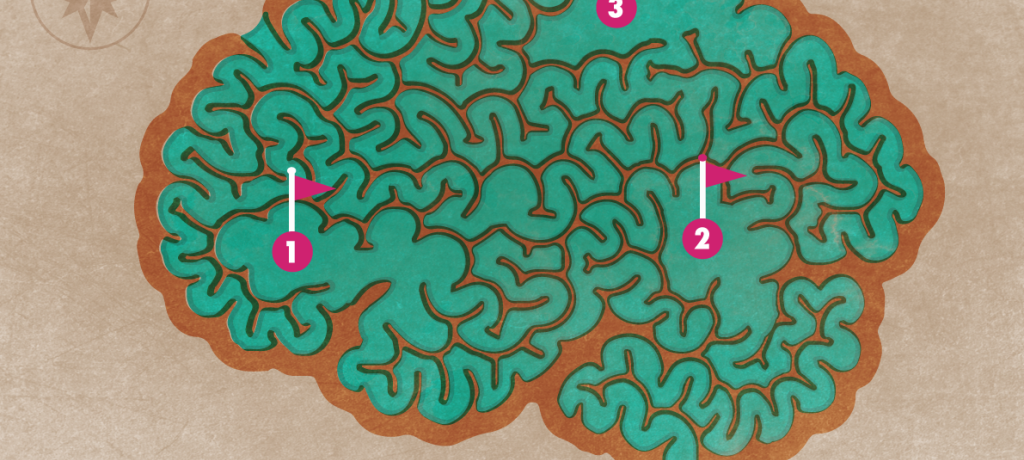This research project uses machine-learning tools to capture the distinctive strategies humans adopt to explore their environment. It is based on analysis of a worldwide database of more than 4 million spatial trajectories (collected via the Sea Hero Quest computer game) – one of the largest databases of human behaviour developed for the purposes of research.
Winner of the 2018 call for research projects
Laboratories involved : LS2N (CNRS)
CaDySiT has received funding from RFI OIC and Atlanstic2020 for this thesis.
Funder : Région Pays de la Loire
About the project
Understanding the strategies we adopt to explore our environment is central to many disciplinary fields, from clinical sciences to robotics or image processing.
In this project, we will concentrate on the visual and spatial exploration of our environment by analysing 1/eye tracking data and 2/ physical displacement trajectories in a virtual environment. It is our hypothesis that these trajectories can be a rich source of information both about the individual concerned (cognitive status, demographic profile) and the environment in which the trajectories occurred (content for images and topology for physical environments).
To capture this information, we plan to develop forms of representation for the complex signals that make up these trajectories and machine learning tools that can group (unsupervised clustering) and classify (supervised learning) the data.
grouper (clustering non supervisé) et de les classifier (apprentissage supervisé).
Methodology
We will base our research on pre-existing, large databases. For the eye tracking we are particularly interested in studying faces, variations in which can indicate neuropsychological disorders such as autism. For the spatial trajectories we will use the database produced by the Sea Hero Quest computer game which has captured the spatial navigation strategies of more than 4 million people around the world (www.seaheroquest.com).
Schedule
September 2019 : doctoral thesis begins.
Prospects
These studies have particular relevance for research on health care of the future. The tools developed will enable doctors to perform rapid, inexpensive and fun tests to assist with the early diagnosis of various neuropsychological disorders.
Contacts
Antoine Coutrot – CNRS / LS2N (antoine.coutrot@ls2n.fr)


